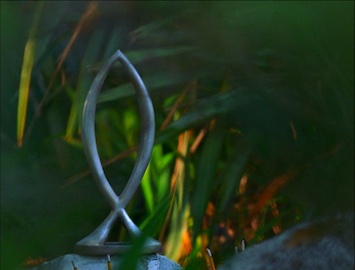
There is so much more to talk about when it comes to Elijian beliefs & how they’re intertwined with the show, but I’ll just make 2 more points. First, my belief is that had #Xena Warrior Princess continued on several more seasons, we would have seen her story move more into a gothic sensibility, something more resembling the roots of the Evil Dead series. We kind of see something like this in the 6th & final season of #HerculesTheLegendaryJourneys. The most recent RenPic series to date, Ash Vs the Evil Dead, is a bit like how I imagine it, except with more elaborate cosmology after Paradise Lost, & other sources. The Olympians would still play a role, but would look different. I think the God of Love causes a paradigm shift in human affairs, & this reverberates with them, because as people change, so do gods.
Exactly how do I imagine that? That’s a story for a different time, but I see a colorful future for a revival, if it happens. A more colorful Olympus, & as a Valley Mom rather than a Valley Girl, I’d love to see Alexandra Tydings return as a wiser Queen Aphrodite!
Finally, I’d like to talk about the Elijians’ pacifism. I’m fairly certain that doesn’t sound appealing to anybody, but I disagree. A lot of the action on #Xena is nonviolent in nature. Most of the Indiana Jones movies are nonviolent. Violence is only a small part of action, & suspense. I’ll talk more about this next week, but my research into the roots of violence, & the treatment for it, was key to my understanding of Livia’s nature, her backstory, & her recovery. This whole project is like an illustration of her journey.
To end this week’s topic, I’ll post a music video that to me represents the ideals of the Elijian movement. I needed something I could listen to everyday that invoked their community, its simplicity & its majesty. It’s an orchestral piece that comes from the 1985 movie Witness, starring Harrison Ford as a big city detective who’s protecting an Amish eyewitness to a murder. He goes to their village, & doesn’t seem to fit in, nor does he seem welcome. One day, a couple marries, & the community gathers to build them a barn, in just a few hours, by working together. Ford is asked to join in, & since he’s a carpenter in real life, he does rather well. As the day progresses, he bonds with the others, & starts to realize their simple way of life makes a lot of sense after all.
Maurice Jarre wrote the score, with synthesizer for the scene, but he also wrote a version for full orchestra, which I think sounds much more like how #Xena composer Joseph LoDuca would arrange it. Australian director Peter Weir used Pachelbel’s Canon in D as the temp track for Jarre’s score.
First, I’ll post the link to the scene itself, the most famous one from the film, if you want to see it in context, with a light synthesizer arrangement. Then I’ll post the orchestral version:
And now the full orchestral version used for this project (I never get tired of listening to it!):